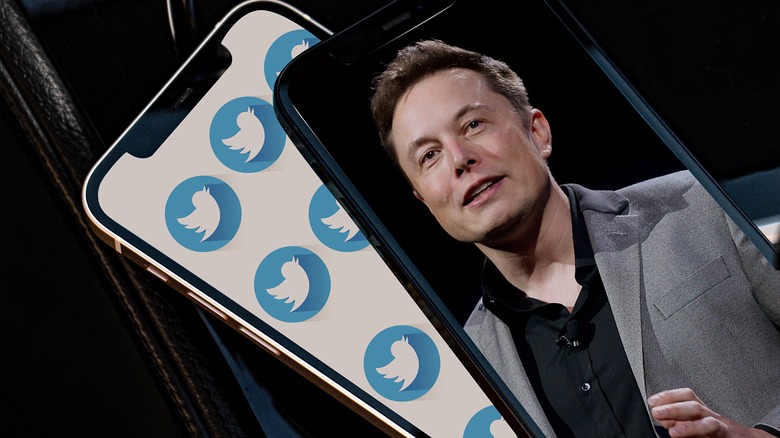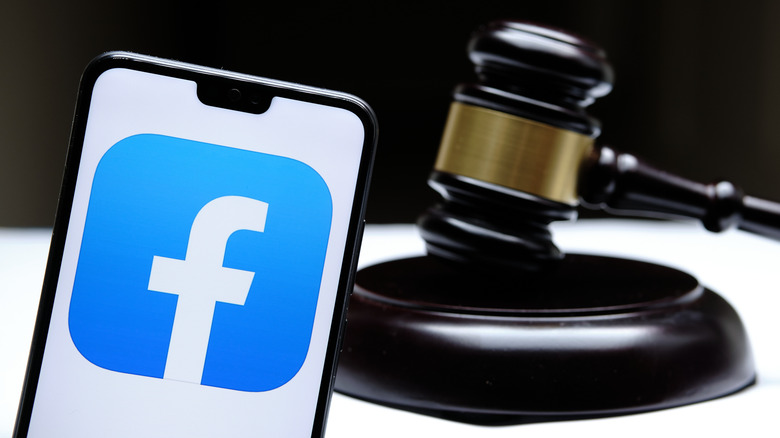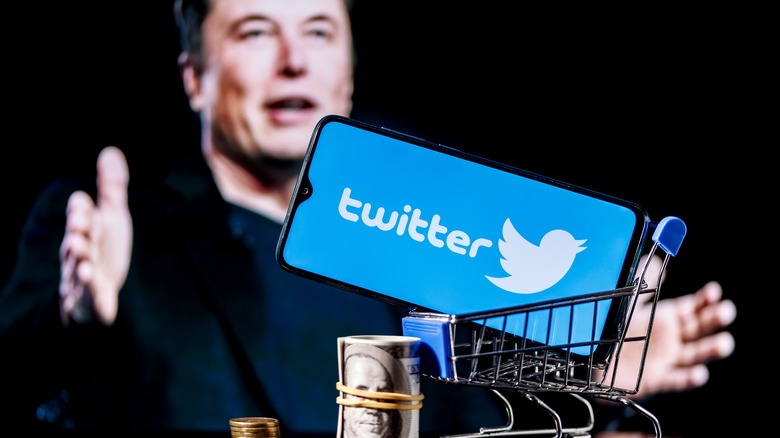Elon Musk's 20-Year-Old Rival Reveals Why His Social Media Was Taken Down
One of Elon Musk's online rivals has had a social media account temporarily banned without much of a reason given. The 20-year-old, who has been antagonizing the world's richest man since 2020, may have lost his Facebook account for a short period after Meta owner Mark Zuckerberg became a target of his antics.
Although the bulk of his Twitter feed seems to be memes and comments about his companies, Musk himself is no stranger to Twitter controversies, but the billionaire's account has yet to be suspended or removed for any of his actions. This included sending a tweet in 2018 that branded a diver leading a team that was trying to rescue a group of Thai schoolboys from a flooded cave as "pedo guy." The comments followed the cave diver, who was named Vernon Unsworth, and who had made some disparaging remarks about a submarine Musk had sent to assist with the rescue efforts. Unsworth labeled the submarine a "publicity stunt" and said Musk can "stick it where it hurts." Following Elon's crude rebuttal, Unsworth filed a lawsuit against the billionaire. Musk's defense included claims the phrase "pedo guy" is common in his home country of South Africa.
Musk's continuous tweeting about cryptocurrency has also landed him in hot water. The Tesla founder is currently being sued for $258 billion after someone likened his backing of meme currency Dogecoin to a "pyramid scheme." The billionaire had used a combination of social media and his own companies to back the currency, launching a merch store that only accepted Dogecoin and pushing to get the ultimately worthless digital currency trading for $1 apiece.
It's not the first time 'ElonJet' has caused some trouble
The account in question is "ElonJet," a page dedicated to tracking the movement of the world's richest man's private aircraft. Jack Sweeney started the page, which uses a bot and publicly available information to track most of the plane's movements. The account seemed to have irked Musk to the point where he offered Sweeney money to close the page down. Musk offered the then-teenager $5,000, but Sweeney responded with a demand for $50,000 saying: "It would be great support in college and would possibly allow me to get a car maybe even a Model 3." Despite the fact it uses publicly available information, Musk seemed to see the page as a potential security threat, saying: "I don't love the idea of being shot by a nutcase." It has also been threatened with removal before, with Sweeney claiming it may have been deleted or forcibly taken down as recently as January.
While ElonJet hasn't come down but I have warned of it. We need to remember to keep our boundaries if we don't it may have to come down or may forcibly be taken down. ElonJet was started to track business moves not to have people ambush Elon at airports.
— Jack Sweeney (@JxckSweeney) January 3, 2022
Musk isn't the only celebrity Sweeney's bots track, as the University of Central Florida student has previously removed a tracker at the request of a famous jet owner. "Shark Tank" investor and entrepreneur Mark Cuban appeared to contact Sweeney via private message, expressing similar security concerns to Musk. The Dallas Mavericks' owner offered business advice in exchange for the tracker's removal and claimed that Sweeney would be gaining a "friend for life" by taking the page down. This offer seemed more appealing to the student than $5,000 — and the tracker on Cuban's planes was removed (via Business Insider).
The student's Facebook page was banned
It may have been the addition of Meta owner Mark Zuckerberg's private plane that finally got one of Sweeney's social media accounts banned — albeit temporarily. On September 26, 2022, Sweeney tweeted a screenshot of the banned page with the words "Really @facebook." The ban also caused issues with the 20-year-old's tracking bots and stopped his accounts on other pages from posting updates for a short time. Although his other social media accounts were indirectly affected by the ban, none of the others were removed. This includes Sweeney's plane-tracking Instagram account, despite Instagram being one of Meta's companies and Facebook accounts being linked to Instagram accounts most of the time.
Really @facebook pic.twitter.com/7NMxIVl6eE
— Jack Sweeney (@JxckSweeney) September 22, 2022
Sweeney appealed the ban, and Facebook found it in his favor a few hours later, restoring the account. Although the account was restored, Sweeney still wasn't happy. In the tweet confirming the account had been restored he likened the ban to a similar incident that happened to his Discord earlier this year. Sweeney then used the tweet to call for more transparency from social media companies. He said: "Back in business, still doesn't make it acceptable that it was taken down in the first place. Similar thing happened this year when my Discord was taken down and brought back. Both cases I wasn't given a reason why they took it down in the first place. We need more transparency." There's also a chance that this won't be the last time tracking the owner of a social media company will put Sweeney's accounts in jeopardy.
Musk might still be buying Twitter
Although Sweeney tracks the flights of many famous people's private planes and posts his findings on several platforms, one account really stands out — The Twitter account that tracks the movements of Elon Musk's private jet has arguably drawn the most attention, including from the world's richest man himself who offered a cash sum to have it taken down. Despite proposing Twitter becomes a "free speech platform," it is still a private company. Therefore it is within the realms of possibility Musk can simply have the account deleted if his takeover of Twitter ever happens. And despite the back and forth and legal drama, that takeover could still happen. Musk revealed he was the social media platform's biggest shareholder earlier this year, and that revelation quickly snowballed into a takeover bid. A $44 billion deal was eventually agreed upon between Musk and Twitter, but it hit a major snag before the takeover could be completed.
Musk claimed Twitter was underestimating the number of bot accounts on its platform and demanded access to large amounts of data along with the method Twitter used to reach its "5% of accounts are bots" figure. Twitter saw this demand as unreasonable, Musk pulled out, and the whole affair is now playing out in court. The court case itself has a few potential outcomes. Musk could be forced to pay the $1 billion "break fee" he agreed to when negotiations began. A judge may decide the 10-figure sum doesn't cover the losses Musk's actions have caused Twitter and order him to pay more. Or the deal itself could even be forced through, leaving Musk with $44 billion less in his bank account and a social media platform in his portfolio — which could be bad news for Mr. Sweeney's plane tracking account.



